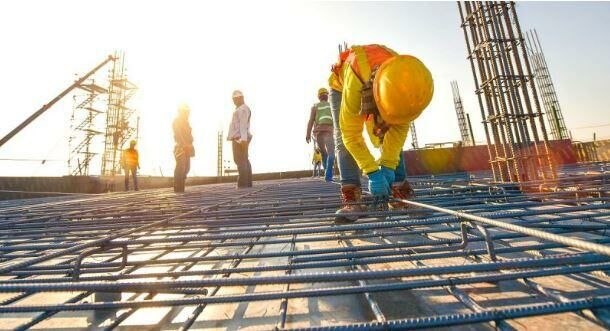Steel dreams: Thai infrastructure boost sparks sector revival hopes

Hopes of a revival in the stagnant steel consumption sector in the country are being pinned on the government’s impending infrastructure development projects. The fiscal 2024 state budget, yet to be approved, is anticipated to propel these initiatives, according to Chaichalerm Bunyanuwat, the president of the EAF Long Product Steel Producers Association.
He noted that the steel and iron industry would undoubtedly benefit from infrastructure projects. The projects range from the construction of highways and roads to road repair works.
Last year’s coalition government formation process, which was lengthy, resulted in a delay in budget planning. This delay is partly blamed for the slow progress in infrastructure development and the subsequent drop in domestic steel demand.
High-value infrastructure projects by the government can have significant economic impacts. They can create jobs and stimulate the local economy, reported Bangkok Post.
The older projects in the pipeline include the Rama 3 Road-Dao Khanong motorway, which is worth 27.7 billion baht (US$768,057,567), the 10.5 billion baht (US$291,140,955) Bang Khunthian-Ban Phaeo motorway, and the 72.9 billion baht (US$2,021,350,059) double-track railway connecting Denchai, Chiang Rai, and Chiang Khong.
The new infrastructure projects include the 6.5 billion baht (US$180,230,115) Dark Red Line electric rail system, which connects Rangsit with Thammasat University’s Rangsit campus, and the 14.6 billion baht (US$404,824,566) Kathu-Patong motorway in Phuket.
Chaichalerm expressed optimism that if the budget is allocated to these projects, it could stimulate steel consumption in Thailand. However, the association has yet to forecast the steel industry’s prospects in 2024 due to multiple factors. These factors include the impact of the EU’s carbon border adjustment mechanism (CBAM), upcoming general elections in various countries, and geopolitical conflicts.
The CBAM, which seeks to address carbon-intensive manufacturing, is seen as a non-tariff barrier that could affect steel exports to the EU.
In 2023, steel consumption in Thailand was projected to be 16 million tonnes. This estimate was due to weak purchasing power, high household debt, and the slow progress of state infrastructure development. However, the association believes the actual volume produced will fall short of the target.
In the previous year, domestic steel consumption fell by 9.1% year-on-year, as reported by Tata Steel Thailand Plc, a subsidiary of India’s largest steel manufacturer.
Latest Thailand News
Follow The Thaiger on Google News:


























